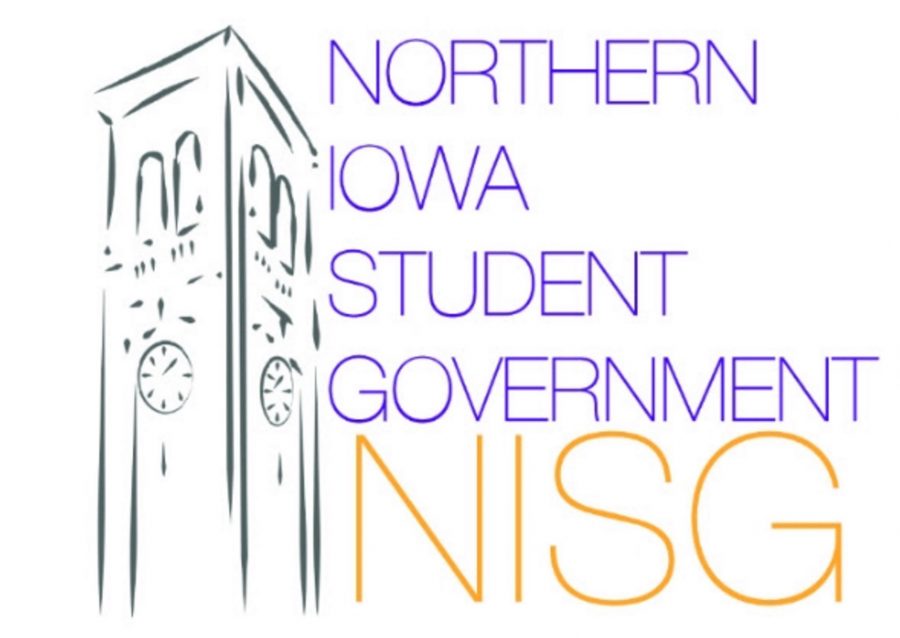Election commission puzzles with debate moderator choice
Feb 13, 2017
The Northern Iowa Student Government (NISG) debate is held each year during campaign season (this year’s debate is scheduled for Feb. 16 at 6:30 p.m. in the Maucker Union). Like debates at all levels of government, it is intended to help voters become informed on the positions of each candidate.
According to Northern Iowan (NI) records, the NI has moderated the NISG debate for the last six elections — equivalent to five editorial tenures. This format, a journalist moderating a governmental debate, is in line with the norm of American campaigning — you’ve all seen major news outlets moderate US presidential debates and the like.
This year, however, the election commission has decided to hold the debates without moderation by a free and independent news outlet. Rather, the commission is considering moderation by a member of the NISG Supreme Court or a university professor, according to Benjamin Dzaboff, chair of the election commission and associate justice of the NISG Supreme Court.
Professor considered
According to Dzaboff, the election commission will be selecting a “third party” to host the debate. Dzaboff said this will either be a philosophy professor or the clerk of the court, Nnamdi Nwaneri.
“We are currently asking a professor in the philosophy department. If that person is unable to do it then we are thinking about having Nnamdi moderate because he is not a voting member of the Supreme Court or election commission,” Dzaboff said in an email.
It is our view that in considering these options, the election commission is doing a disservice to UNI students and to the integrity of NISG elections.
The result of the NISG election likely has no clear effect on a philosophy professor, depending on who this person is, but would directly affect students. There may be little personal accountability for a university professor who cannot adequately serve students in moderating a fruitful debate.
This point may be used to justify the choice, but we feel a moderator with a clear grasp of issues affecting students is necessary to fulfill the basic function of a debate. As students, we have a strong incentive to press candidates for clear answers in response to the student questions the moderator would presumably be reading — this is the job of a free and independent press.
A university professor hasn’t been on the frontlines covering the issues affecting UNI students through the academic year — the NI has.
It’s unclear what the election commission’s reasoning is for considering a philosophy professor. Dzaboff is a philosophy major according to the UNI directory.
Dzaboff declined to comment to the NI regarding the decision to select another moderator.
Conflict of interest
Should the professor decline to moderate the debate, the election commission would select Nwaneri to moderate the debate, which leads to a troublesome conflict of interest.
Maggie Miller, current chief justice of the NISG Supreme Court, is running for student body president. Not only has Miller been involved in rule changes implemented in time for the current election, she also sat on the committee to confirm Nwaneri as clerk of the court. Miller told the NI that she did not hold a voting role in the decision regarding Nwaneri, but she did advise Hunter Flesch and Avery Johnson (current NISG president and vice president, respectively) on their decision regarding his selection.
While Nwaneri is not a voting member of the Supreme Court, he does have a voice in all court discussions. Nwaneri and Miller’s relationship presents a situation in which, again, the moderator has a clear reason to not fully question one of the candidates. Nwaneri would be in a position in which he would be forced to question one of the people who helped appoint him, and he works with Miller on a weekly basis.
Furthermore, the notion of a Supreme Court member moderating a presidential debate seems strange in itself. It would be as if US Supreme Court Justice Ruth Bader Ginsburg moderated the 2016 presidential debate between Donald Trump and Hillary Clinton. In addition, the role of the Court in this particular debate is even stranger — it would be as if Ginsburg ran for president and Justice Sonia Sotamayor moderated the debate.
This conflict of interest would never stand at the national, state or local level of government. We, as students, cannot let such a clear exploitation of government and contortion of logic stand on our campus either.
Why a ‘third party’?
Dzaboff, at an elections commission meeting nearly a month ago, told the NI that last year they heard complaints of bias regarding the debate. The concerns were that Nick Fisher, the NI executive editor, had favored Jamison Whiting, who was on one ticket last year, due to perceptions of a friendship.
The extent of their relationship is that they share a major.
NI should moderate debate
In our view, the best option for a “third party” debate moderator would be the NI. We have covered student concerns thoroughly and fairly over the course of this academic year and since our conception in 1892. The NI has demonstrated a qualified and dedicated approach to pursuing information that will inform students.
The decision to remove the NI from the debates flies in the face of an established tradition and undermines the integrity of the NISG election itself.










